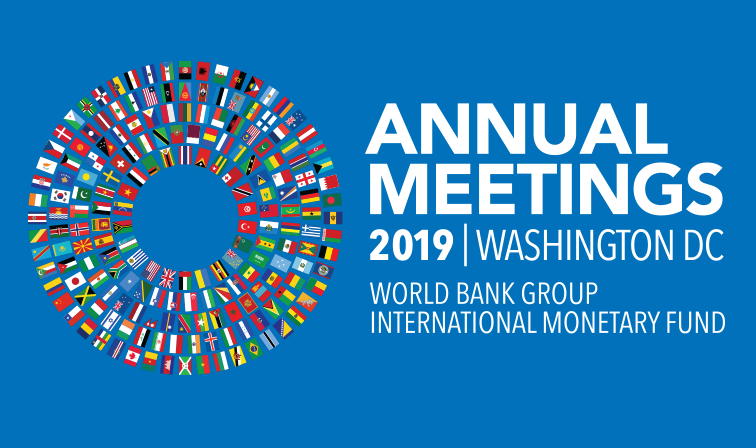 October 16, 2019
October 16, 2019Starting on October 3rd, thousands of Ecuadoreans took to the streets for ten days, demanding an end to an IMF-imposed austerity package, including the elimination of fuel subsidies and public sector wage cuts. Indigenous activists, who led the protests, also condemned the ongoing plundering of their lands and violations of their economic and social rights by extractivist oil and mining practices that work in tandem with the mechanics of austerity. Late on October 13th, the government of Lenin Moreno agreed to withdraw from the IMF-backed Decree 883, which raised fuel prices, and to work with Indigenous leaders to develop a compromise economic program. Occurring after the tragic deaths of eight activists, and with at least 1,000 injured, it remains to be seen whether a human rights-respecting path forward can be charted, and what role the IMF will play.
CESR and partners in Latin America have issued an appeal to the IMF to seriously evaluate its role in influencing the adoption of regressive fiscal policies and the violation of human rights obligations and democratic procedures in various Latin American States, such as Ecuador. The statement, which also criticizes State repression and the excessive use of force as responses to demands for social rights, can be read here.
In the past ten years, similar disruptions have taken place throughout the Global South when unpopular fiscal adjustments prompted by the IMF have given rise to increasing hardship for the poorest sectors of society and exacerbated economic, gender and social inequalities. From Brazil and Argentina to Egypt and Tunisia, these developments have stirred outrage and a clamor for change. The events that have occurred in Ecuador are only the most recent examples of fallout from the IMF’s loan conditions and policy advice, which have a history of enabling violations of civil, political, economic and social rights.
With this context in mind, CESR will be at the World Bank/IMF Annual Meetings this week, challenging the IMF’s global role in driving austerity measures that result in the steady erosion of human rights. Drawing on a substantial body of work around the “Lost Decade” for equality and human rights since 2008, we will advocate for more sufficient, equitable and accountable fiscal policies.
CESR events and appearances at the 2019 World Bank/IMF Annual Meetings Civil Society Policy Forum:
CESR’s Kate Donald will speak at this session, which will debate the tensions between IMF-advised structural adjustments and the need for global socioeconomic transformations. Discussants will draw on the 2019 Spotlight Report on Sustainable Development and propose constructive ways forward for the Fund’s work to tackle inequalities and achieve the SDGs.
Thursday, October 17th, from 9 to 10:30 a.m., IMF HQ2 – 03B-838B
Sustainable Development Goals on Inequality and Work: Reviewing the Alignment of IMF, World Bank
CESR’s Kate Donald will be a panelist at this session organized by the International Trade Union Confederation (ITUC) and discussing the IMF and World Bank’s contribution to Sustainable Development Goals 8 and 10, including inequality reduction, full employment and decent work for all. The panel will be moderated by Muttaqa Yushau, (ITUC) and other panelists will include Franz Ebert (Max Planck Institute for Comparative Law and International Law), Michael Weber (World Bank) and Sean Nolan (IMF).
Thursday, October 17th from 11 a.m. to 12:30 p.m., Room 12-210
CESR’s Mahinour el Badrawi will present evidence and analysis from the Egypt Social Progress Indicators at this session, organized by the Arab NGO Network for Development (ANND) and exploring how the IMF-imposed and -inspired policies in the Arab Region are impacting agricultural policies and the achievement of right to food for all citizens. The panel will also include representatives from ANND, the Sana’a Center for Strategic Studies and Society for International Development.
Thursday, October 17th, from 11 a.m. to 12:30 p.m., IMF HQ2 – 03B-838B
CESR’s Mahinour El-Badrawi will moderate this session exploring the impact of IMF loan programs and policy advice on women and girls by drawing on new evidence from countries including Egypt, Jordan, Tunisia, Pakistan and Brazil. Panelists will include Nabil Abdo (Oxfam), Bilquis Tahira (Shirakat), Iara Pietricovsky (INESC), Stefania Fabrizio (IMF) and Mercedes Vera Martin (IMF).
Thursday, October 17th, from 3:30 to 5 p.m., IMF HQ2 – 03B-838B
CESR is on the Steering Group of the Independent Commission for the Reform of International Corporate Taxation (ICRICT), whose Commissioners are also participating in a number of events at and around the Annual Meetings. See here for details.